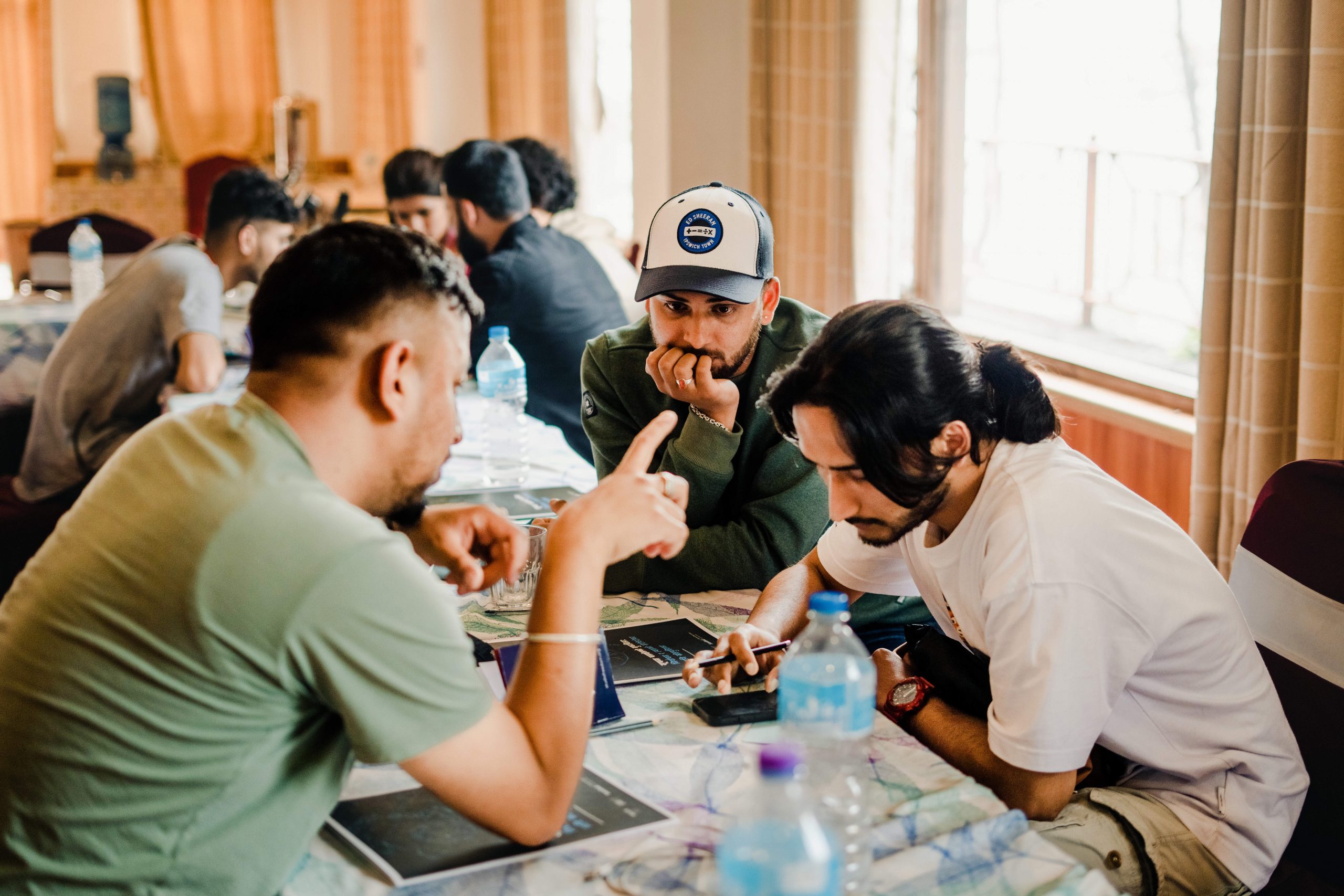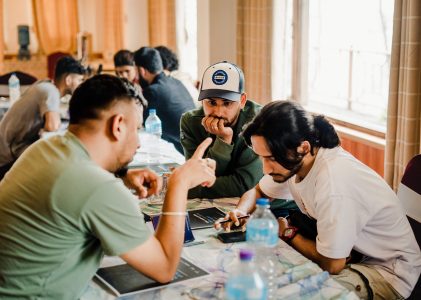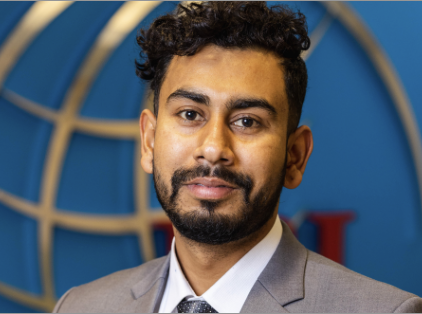
After two weeks of massive Gen Z-led protests that toppled Nepal’s government, a right-wing political activist Durga Parsai released a video accusing Civil Society Organizations (CSOs) of orchestrating the uprising. In a 15-minute video viewed over 2 million times and shared more than 10,000 times to date across several social media platforms, he alleged that grassroots CSOs, namely Freedom Studio and Accountability Lab, have received massive foreign aid to fuel instability in the country. Since then, social media has been flooded with a ‘nepo-baby’ styled smear campaign targeting CSO leaders, using edited images of their travel and conference attendance to portray them as ‘people living a lavish life by selling the story of the poor’. Many activists have also been branded as agents of western governments, while online trolls have amplified the false narrative of civil society as a corrupt and foreign-controlled institution.
Civil society now must learn new local ways to counter misinformation and expose manipulation.
What appears on the surface as an online backlash is, in reality, a political project. It is the continuation of the same pattern witnessed on September 9, 2025. Early investigative analysis by The New York Times suggests that massive destruction and vandalism targeted at government and private institutions that day was not a spontaneous act by the protestors but part of a coordinated effort to destabilize the country. However, that destruction didn’t stop the formation of an independent government. And now, those threatened by this transition are weaponizing nationalism and misinformation to silence independent voices. Even traditional political parties, which had lost their grip over state resources and influence, are aggressively joining the force of spreading disinformation that foreign powers were behind this so-called ‘color revolution’ and youth organizations were exploited to run this propaganda.
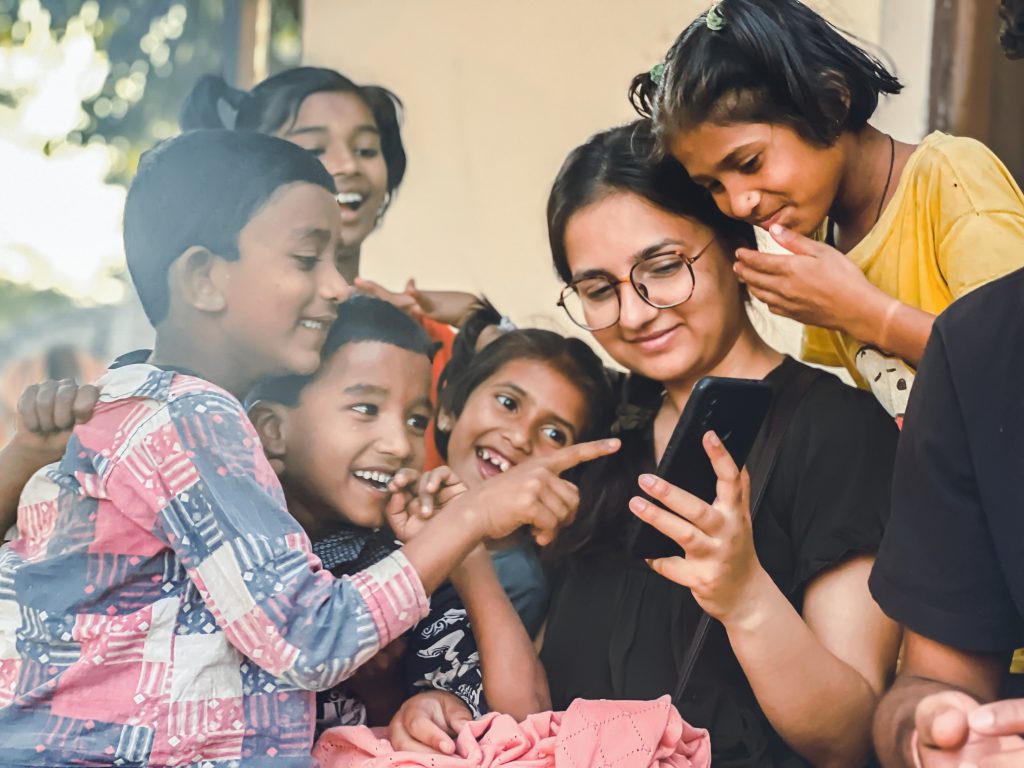
Patterns of disinformation and coordinated messaging that creates hostile political rhetoric online suggests that this campaign against civil society serves three major purposes. First, to discredit the Gen Z-led movement by portraying it as a foreign conspiracy, and thereby denying the legitimacy of the political change it brought. Second, to sow division among citizens through disinformation, creating confusion among the youth and communities. With national elections only five months away, fueling instability may well serve the interests of political actors seeking to devalidate the change and reassert control. And third, to weaken the independent civic space that has long defended democracy, inclusion, and accountability, replacing it with political loyalists.
It is not the first and certainly not the last time that civil society will face such attacks, at home or abroad. Across time, civic actors have been branded as anti-nationalist whenever they challenge the corrupt system and undemocratic practices. But what makes this moment different is the weaponization of the internet and technology. Though technology has given the young generation a louder voice than ever before and civil society is leveraging social media for advocacy and connection, this tool has also been exploited by repressive forces to manipulate narratives, distort facts, and inflame divisions. Disinformation, once limited to political speeches, pamphlets, and radio and television programs, now travels instantly across the internet through deepfakes, videos, memes, and AI-generated images. This exacerbates epistemic crisis among a larger population, affecting their critical and logical reasoning and their consensus. When lies travel faster than truth, hate finds a home more easily than harmony, and division is applauded while unity is dismissed, the social fabric is eventually distorted. Especially in an unstable situation like ours, where a larger Nepali population is living in fear, online disinformation helps to fuel anxiety, deepen mistrust, and drive people further apart from each other.
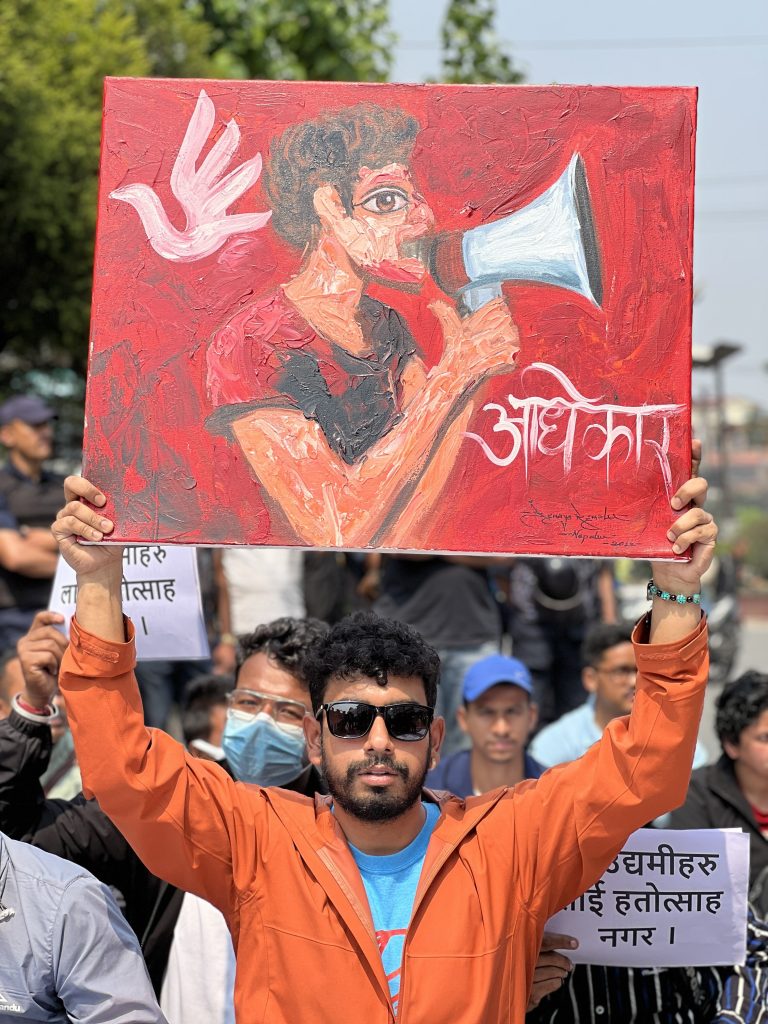
Although disinformation has become a weapon of repression, online creative narrative building rooted in inclusion and democratic values can serve as a powerful tool of resistance and resilience. Civil society now must learn new local ways to counter misinformation and expose manipulation. It must reclaim digital space through creativity and technological innovation that resonates with people’s lived realities. It can no longer just react to falsehoods but now needs to go ‘offensive’ against disinformation, by proactively shaping narratives of truth, empathy, inclusion, and solidarity. This involves mastering the digital terrain with imagination and integrity, investing in digital literacy, bridging the urban-rural digital gap, strengthening citizen journalism, and developing innovative tools to curb fake news and disinformation at their source. This requires building alliances beyond the eco-chamber of CSOs and engaging technologists, designers, educators, and artists to reimagine democracy and civic space online.
What is happening to civil society in Nepal is a warning of what lies ahead for democracies and civic actors worldwide.
What is happening to civil society in Nepal is a warning of what lies ahead for democracies and civic actors worldwide. As Gen Z–led movements for justice and accountability are spreading around the world, repressive authorities are also learning and adapting, often borrowing tactics of narrative warfare seen in Nepal. These new movements, unlike traditional movements, lack proper structure, formal leadership, and a single unifying ideology. While this decentralization and intersectionality make them agile, they also expose them to coordinated digital attacks and make them vulnerable to division online. Authoritarian actors have understood that if they cannot suppress protest on the streets, they can at least invest heavily in running a massive coordinated digital campaign run by their cyber troops to divide these youths online and delegitimize the overall movement. In this new terrain, power is no longer only contested in streets but across digital networks where truth itself is under siege. The ability of civil society to endure will depend on how creatively and collectively it can tell stories of hope and justice online. The battle for democracy has already begun online, and civil society must start working outside the box to win it.
Nishchhal Kharal is co-founder and CEO of Freedom Studio. He has 15 years of experience in youth mobilization, creative activism, and movement building.
